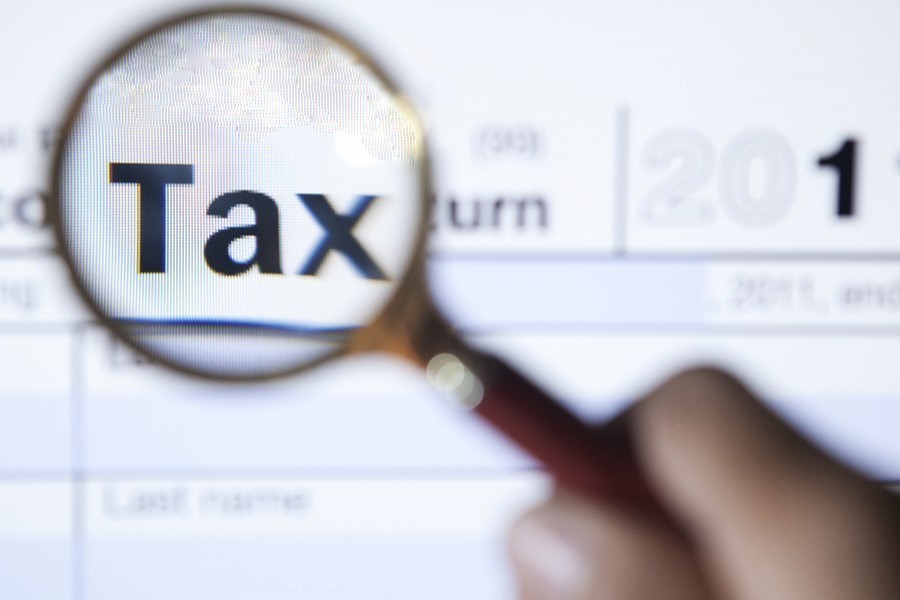The Institute of Chartered Accountants of Bangladesh (ICAB) on Wednesday recommended providing tax benefits, like the ones now being enjoyed by the RMG industry, to all the export-oriented industries in the country.
The corporate tax rate for all the export-oriented industries should be brought down to 12 per cent like that of the readymade garment (RMG) industry, while the green RMG units pay at 10 per cent, it said.
Currently, the 100 per cent export-oriented industries, other than RMG, enjoy a 50 per cent tax rebate on the income from exports.
The suggestion was placed at a pre-budget meeting of the National Board of Revenue (NBR) with ICAB and the Institute of Cost and Management Accountants of Bangladesh (ICMAB) at NBR headquarters in the city.
Presided over by NBR Chairman Abu Hena Md Rahmatul Muneem, ICMAB President Md Mamunur Rashid, Treasurer Ali Haidar Chowdhury and fellow member Jayanta Kumar Poddar, ICAB President Md Shahadat Hossain and Consultant Snehashish Barua spoke at the programme.
In his presentation, Mr Barua proposed imposing 2.0 per cent digital services tax (DST) on gross receipts by the non-resident digital service providers. Their local agents are realising 15 per cent tax at source from such services which is excessively high and unrealistic, he argued.
He said the proposed DST rate should be applicable for an income derived from the digital services like online advertising, Google, Facebook and online marketplaces having worldwide gross receipts of at least Tk 75 billion annually and with total gross receipts of Tk 250 million annually in Bangladesh.
"If a digital service provider meets both the thresholds, it shall be liable for the DST by its legal representative as of the fourth month following the month in which the thresholds are met," he said.
In case of transfer of shares from one resident entity to another, the ICAB said that if the valuation report is not certified by a professional firm at the time of transfer of shares and the applicable tax is not paid, the transfer should not be effective.
Proposing amendment to the rule 34 of the Income Tax Ordinance 1984, the ICAB proposed to make it mandatory for the respective branch or liaison office of a company to declare the appropriate portion of income generated from Bangladesh separating global income of the parent entity certified by respective group auditor along with tax return.
Besides, the Central Procurement Technical Unit (CPTU) of the Ministry of Planning needed to make it mandatory that every project awardees will be required to submit ETIN of the project office, it said.
Meanwhile, considering the increase of living cost in the past few years, the ICMAB proposed to broaden the tax-free income threshold to Tk 400,000 from Tk 300,000 for individual taxpayers.
While for tax-paying women and senior citizens (aged 65 or above), the tax-free income limit should be increased to Tk 500,000 from Tk 350,000, it proposed.
It also urged the revenue authority to exempt submission of income tax returns for the senior citizens, whose only income source is from savings certificates and pension.
The ICMAB also proposed to amend section 52D and section 53F (2) of the Income Tax Ordinance, 1984 so that the provident fund and workers profit participation fund (WPPF) become free of income tax deducted at source and advance tax as such funds are supposed to be tax-free.
Proposing an increase of the perquisite ceiling from Tk 0.55 million to Tk 1.0 million, it said that if the ceiling is raised, companies will be encouraged to pay more salary and allowances which will result in more revenues as workers pay taxes on their perquisites.
Besides, the ICMAB proposed to remove the existing 10 per cent tax on stock dividends given to shareholders by listed companies as part of allowing the businesses to go for expansion.
Emphasising on reducing excessive dependency on customs duty which is currently 29 per cent of total revenues generated in the country, the ICMAB president suggested making produced goods and services of better quality by dipping the cost of doing business as well as creating a competitive environment.
To encourage more people to pay taxes, he urged digitising return filing, tax assessment and, appeal and tribunal activities.


